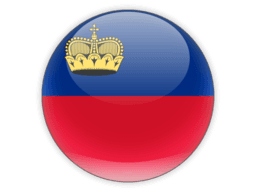
Regions of Liechtenstein
Explore 11 regions
Cities of Liechtenstein
Discover 11 cities across 11 regions
Balzers(1)
Eschen(1)
Gamprin(1)
Mauren(1)
Planken(1)
Ruggell(1)
Schaan(1)
Schellenberg(1)
Triesen(1)
Triesenberg(1)
Vaduz(1)
Liechtenstein is a small landlocked country in Western Europe, bordered by Switzerland to the west and Austria to the east. The capital and largest city is Vaduz. With an area of just 160 square kilometers and a population of around 38,000, it is one of the smallest countries in the world.
Liechtenstein has a highly developed economy and is one of the wealthiest countries in the world, with a high standard of living. Its economy is largely based on financial services, manufacturing, and tourism. The country has a highly skilled workforce and a favorable tax system, which has attracted many businesses and wealthy individuals.
Despite its small size, Liechtenstein has a rich cultural heritage, with numerous castles, museums, and historical sites. Vaduz Castle, the official residence of the Prince of Liechtenstein, is a popular tourist attraction. The country is also known for its outdoor activities, including hiking, skiing, and mountain biking.
Liechtenstein is a constitutional monarchy, with the reigning Prince of Liechtenstein as the head of state. The country has a parliamentary system, with a unicameral legislature known as the Landtag. The legal system is based on civil law and is similar to that of neighboring Switzerland.
Liechtenstein is a member of the United Nations, the Council of Europe, and the European Free Trade Association (EFTA). It is not a member of the European Union, but it maintains close relations with the EU and has adopted many of its policies and regulations. The country uses the Swiss franc as its official currency.
Telephone Code
423
Local Emergency Phone
112
Vaccinations
See WHO recommendations
Climate
Continental; cold, cloudy winters with frequent snow or rain; cool to moderately warm, cloudy, humid summers
Currency (Code)
Swiss francs (CHF)
Electricity/Voltage/Plug Type(s)
230 V / 50 Hz / plug types(s): C, J
Major Languages
German, Italian, Turkish, Portuguese
Major Religions
Roman Catholic 73.4%, Protestant Reformed 6.3%, Muslim 5.9%, Christian Orthodox 1.3%, Lutheran 1.2%, other Protestant .7%
Potable Water
Yes
International Driving Permit
Suggested
Road Driving Side
Right
Tourist Destinations
Treasure Chamber; Kunstmuseum Liechtenstein; Gutenberg Castle; Liechtenstein National Museum; Towns of Nendeln & Eschen
Major Sports
Soccer, downhill skiing, tennis, swimming, mountain biking
Cultural Practices
Liechtenstein's workday is longer than many other countries, 8 a.m. to 6:30 p.m., albeit with a very long lunch break (officially from noon to 1:30 p.m.). So, do not be surprised if people are busy until later than might otherwise be expected. Additionally, on the country's National Day, 15 August, all residents of the principality are invited to Vaduz Castle, the prince's residence, for a reception that includes speeches and free aperitifs.
Tipping Guidelines
Service charges are included in most bills and further tipping is not required. Taxi fares include a service charge so no tipping is necessary.
Souvenirs
Embroidered household linens, knitted woolen and felt items; wooden toys, cuckoo clocks, and jewelry boxes; ceramic, pottery, and marble items; wine, collectible postage stamps
Traditional Cuisine
Käsknöpfle — pasta and sweet onions in cheese sauce
Geography
Area
total: 160 sq km
land: 160 sq km
water: 0 sq km
Climate
continental; cold, cloudy winters with frequent snow or rain; cool to moderately warm, cloudy, humid summers
Natural resources
hydroelectric potential, arable land
People and Society
Population
39,993 (2023 est.)
Ethnic groups
Liechtensteiner 65.5%, Swiss 9.6%, Austrian 6%, German 4.5%, Italian 3.1%, other 11.4% (2020 est.)
Languages
German 91.5% (official) (Alemannic is the main dialect), Italian 1.5%, Turkish 1.3%, Portuguese 1.1%, other 4.6% (2015 est.)
Religions
Roman Catholic (official) 73.4%, Protestant Reformed 6.3%, Muslim 5.9%, Christian Orthodox 1.3%, Lutheran 1.2%, other Protestant 0.7%, other Christian 0.3%, other 0.8%, none 7%, unspecified 3.3% (2015 est.)
Population growth rate
0.7% (2023 est.)
Government
Government type
constitutional monarchy
Capital
name: Vaduz
Economy
Economic overview
high-income European economy; Schengen Area participant; key European financial leader; integrated with Swiss economy and franc currency user; one of the highest GDP per capita countries; relies on US and Eurozone markets for exports
Real GDP (purchasing power parity)
$4.978 billion (2014 est.)
Real GDP per capita
$139,100 (2009 est.)
Agricultural products
wheat, barley, corn, potatoes; livestock, dairy products
Industries
electronics, metal manufacturing, dental products, ceramics, pharmaceuticals, food products, precision instruments, tourism, optical instruments
Exports
$3.217 billion (2015 est.)
Exports - commodities
small specialty machinery, connectors for audio and video, parts for motor vehicles, dental products, hardware, prepared foodstuffs, electronic equipment, optical products
Imports
(2015 est.)
Imports - commodities
agricultural products, raw materials, energy products, machinery, metal goods, textiles, foodstuffs, motor vehicles
Mark Liechtenstein as Visited
Add Liechtenstein to your personal travel map and track your journey around the world. Share your adventures and see your progress grow!